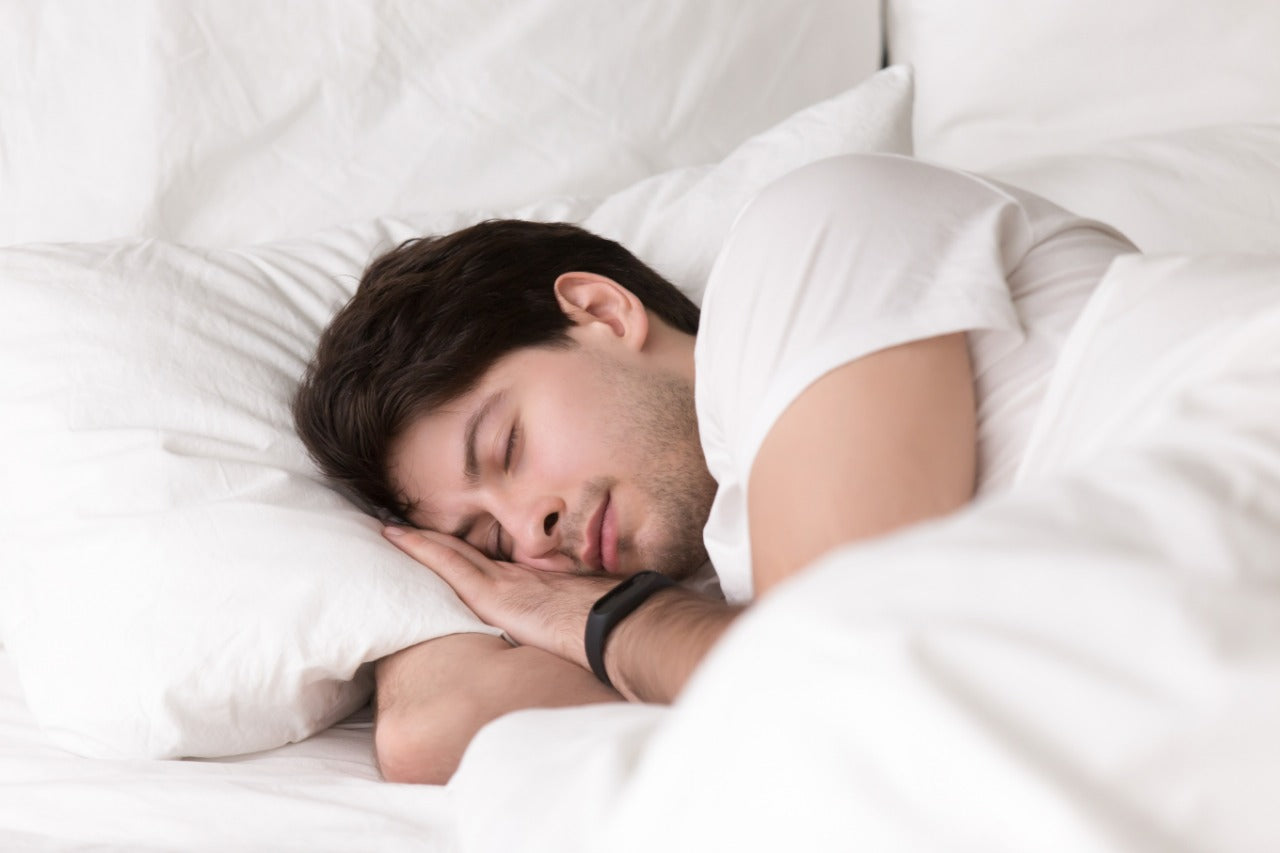Home-Based Sleep Study Tests

Last week, I went over what to expect during a sleep study test at a hospital sleep lab. There are times, though, when your doctor might ask you to take a sleep study test in the comfort of your own home. Today, I’ll take you through the two most common home-based sleep studies, and what you’ll need to do. If you want to know more, check out the National Heart Lung and Blood Association’s fact sheets through the National Institutes of Health.
1. Home-Based Portable Monitor Testing
A home-based portable monitor allows you to monitor your own vital signs and sleep patterns in the comfort of your own home. It’s used in instances where a patient can’t get comfortable at a sleep center, or when it’s not feasible for the individual to get to a sleep testing location. If your doctor asks you to use a home-based portable monitor, you’ll be shown how to operate the equipment when you pick it up.
It’s important to take careful notes and follow the technician’s (or your doctor’s) instructions to the letter in order to get accurate, trustworthy results. Depending on the circumstances, a technician may actually come to your home to help you set up the equipment and ready yourself for the study.
2. Actigraphy
Actigraphy is a type of testing which uses an “actigraph,” a small device you can wear like a wristwatch as you go about your day-to-day activities. Don’t forget to take it off when you bathe or swim! An actigraph is a sophisticated piece of equipment that allows you to record your normal sleep habits for your doctor.
Most actigraphs will record data for a time span between 3 days and 2 weeks. The results can help your doctor understand when you sleep and nap, and tell something about sleep hygiene—whether the lights are on when you sleep, for example.
Your Responsibilities During Home-Based Sleep Testing
Your doctor may ask you to keep a sleep diary in conjunction with actigraphy or with the use of a home-based portable monitor. In either case, recording your sleep data without fail during the test period can go a long way to helping your doctor accurately diagnose and treat your condition. Don’t skip a night and don’t fudge your sleep diary. Honesty and reliable recording are most important when it comes to helping yourself get the best night’s sleep possible.
Author Bio: +Michelle Gordon is a sleep expert who researches and writes about sleep and health, and is an online publisher for the latex mattress specialist Latexmattress.org.


